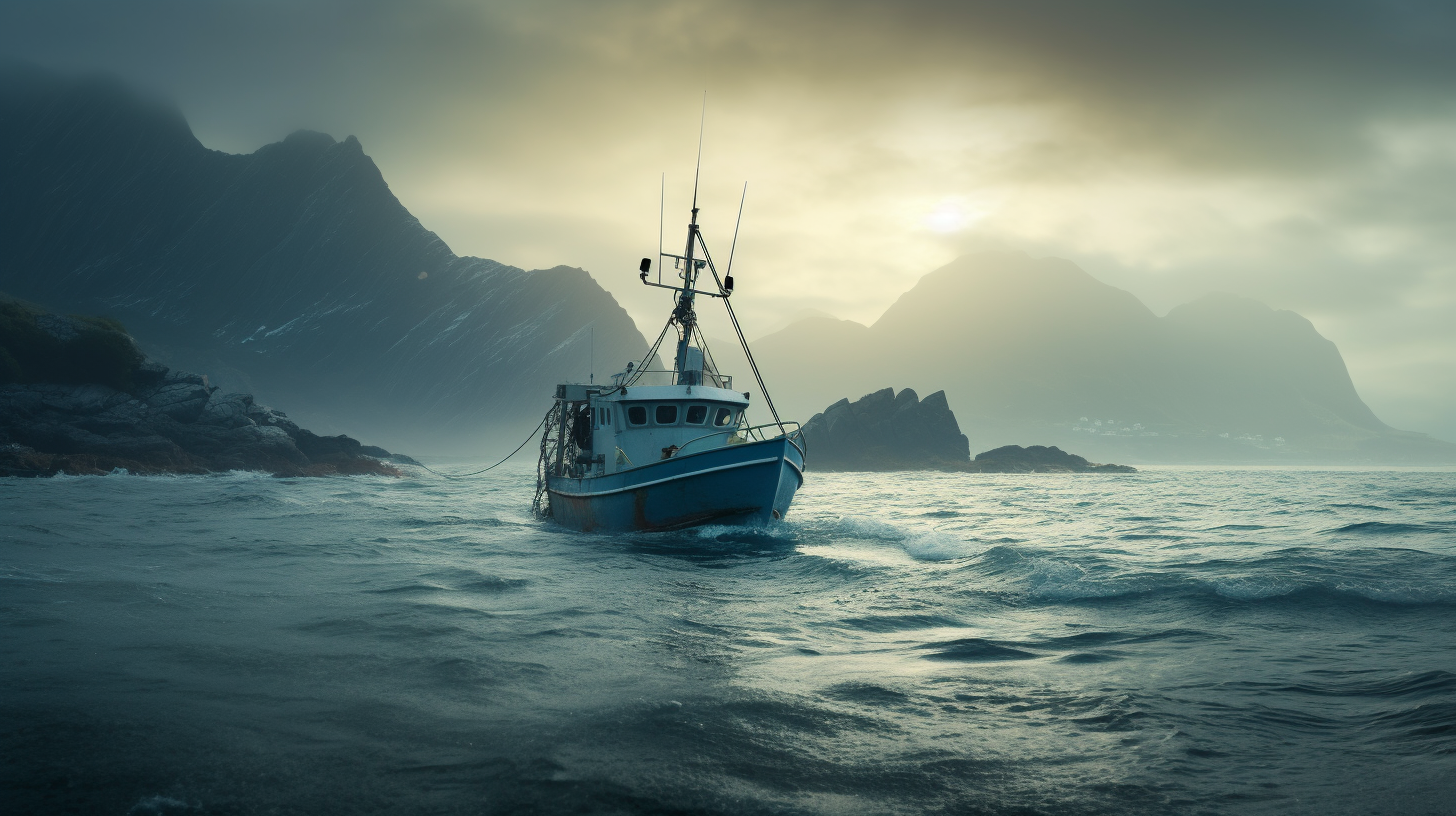The ocean’s surface, once rippling with the harmonies of mankind’s connection to the sea, now lies eerily still, a mirror reflecting a world robbed of its acoustic vitality. ‘How Quiet Seas Have Stilled Fishing Songs’ is not just a chronicle of silence; it is an elegy to a lost tradition that once bridged the gap between man and the vast blue.
In the past, the air was rich with the calls of fishermen returning to shore, their vessels laden with the ocean’s bounty. The songs they sang—chanties of adventure, odes to the sea, and melodies born of nature’s ferocity—have been passed down for generations, echoing the rhythm of their work and the undulations of the waters that were their home and livelihood.
But as climate change and environmental neglect hold our oceans in a relentless grip, the abundance of life beneath the waves has dwindled. Fish populations have suffered dramatic collapses, coral reefs have bleached and crumbled, and the sounds of nature’s underwater symphony have dimmed. Fishermen, those keepers of song, find their voices muted by a reality that spells the end of their trade, and with it, the stifling of a culture woven into the very fabric of coastal communities.
The recent silence of the seas, as described in yesterday’s piece ‘Ocean’s Whispers, Tracing the Soundscapes of Silent Seas’, is not merely a cessation of noise; it is the silence of culture, tradition, and a once-thriving ecosystem.
This phenomenon isn’t localized; it stretches across the globe. From the fishing villages of the Mediterranean to the icy shores of the north, the decline in marine life correlates with the dissipation of cultural expression. The songs that once carried across the water, communicating tales, traditions, and trade, are now stifled under the oppressive silence of an ocean in pain.
Biologists and ecologists have reported a disturbing correlation—quiet seas and empty nets. Where there once was the cacophony of a thousand species, now survive only the most resilient or adaptable. These changes in the soundscape are not just detrimental to marine life; they disrupt the oral histories and cultural identity of communities who depend on the sea’s narrative to frame their existence.
Research into marine soundscapes offers a scientific backing to what fishermen have known for years. As a powerful indicator of ocean health, the diminution in natural aquatic noise marks a change in the ocean’s ecology that reverberates up to those who live by it. The stillness beneath the waves is more than ecological; it is historical and anthropological—a harbinger of a silenced heritage.
As we witness this transformation, the dissonance between hope and reality becomes ever starker. While it is our instinct to clutch at the promise of restoration, the truth lies heavy; the dystopian present of our boarded-up harbors and vanishing traditions can no longer capture the optimism of yore.
The silent seas have not only stilled the fishing songs but have also quelled the spirit behind the music. What use are these anthems without the chorus of the sea to accompany them? Without action, the persistence of these communities hangs in the balance, precariously tethered to the hope that the ocean will once again teem with life and sound.
In remembering the lively cadence that once defined our coasts, we are reminded of what has been lost. But perhaps, more crucially, we are faced with the stark reality of what lies ahead. For it is in these quiet seas and silenced songs that the true cost of our inaction is fully understood—the cost of a culture, a community, and a connection to the natural world that once sung back.
